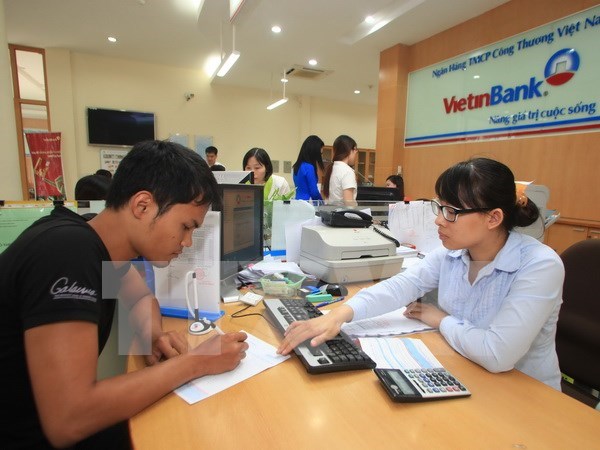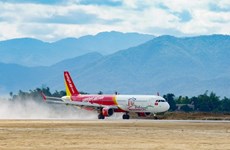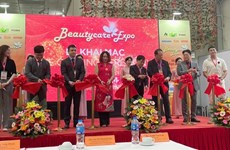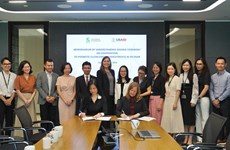Local banks urged to be proactive in economic integration
The banking sector needs to be more proactive in economic integration in anticipation of fiercer competition in both domestic and global playgrounds.
 Transaction at VietinBank (Photo: VNA)
Transaction at VietinBank (Photo: VNA)Rector of the University of Economics and Business under the Vietnam National University Nguyen Hong Son said once the Trans-Pacific Partnership (TPP) agreement is signed, customers will have a variety of choices for overseas banking services in Vietnam.
This means Vietnamese commercial banks must stand ready to join global integration, since the protection for the domestic market would not be as high as at present, and fiercer competition from foreign bankers is unavoidable.
Son suggested the State Bank of Vietnam create a propitious legal environment for credit organisations and build proper management policy frameworks to ensure effective operation of the banking system and promptly deal with external setbacks.
He also recommended continually restructuring to build a prestigious and highly competitive banking system with safe credit activities and effective mobilisation of social resources for fruitful investment.
The State Bank of Vietnam (SBV) has spared no effort reinforcing cooperative relations with international monetary and financial organisations between 2011 and 2015, said Deputy Governor Nguyen Kim Anh.
The effective management of monetary policy, exchange rates and capital helped promote foreign currency reserves from 2012 to 2014, which significantly supported the stabilisation of prices and Vietnam’s macro-economy.
He noted that Vietnam has economic and trade ties with more than 200 countries, territories and organisations. The Southeast Asian country is a member of the Association of Southeast Asian Nations (ASEAN), the World Trade Organisation (WTO), the Asia-Europe Meeting (ASEM), the Asia-Pacific Economic Cooperation (APEC) forum and the TPP.
Vietnam also boasts sound rapports with the World Bank, the Asian Development Bank and the International Monetary Fund, he said, adding that the nation is engaged in 15 bilateral and multilateral free trade agreements (FTA), and ranked fifth out of the 10 ASEAN member states in number of FTAs.
In terms of the foreign trade-to-GDP ratio, or trade openness ratio, Vietnam ranked second in the ASEAN region.
During the workshop, participants also discussed key issues to develop socio-economic performances from 2016 to 2020 and with a vision toward 2030. They proposed measures to stabilise the macro-economy, improve growth quality and the business environment, enhance national economic competitiveness, narrow regional development gaps and avoid the middle-income trap.-VNA













